Defining nutrition isn’t hard, but it’s also not easy. Nutrition, at its core, is the way that we fuel our bodies with food. To look at food as solely fuel, however, would ignore the cultural implications that many foods hold across the globe.
Further, one’s desire to lose weight goes hand-in-hand with nutrition, but this doesn’t mean that nutrition is synonymous with weight-loss. In addition to losing and maintaining weight, the opposite effect is possible: Properly fueling your body can also allow you to gain muscle and overall size. Losing and gaining weight both involve a nutritional plan, but these plans will be fairly different in contents and scope. It’s fair to say that one’s interpretation of the term “nutrition” varies on a case-by-case basis, but some of our nutritional beliefs are flat out incorrect.
To root out the things we’ve all got wrong about nutrition, we reached out to medical professionals as well as dietary experts. Together, our experts of the human body explained how it interacts with food have provided us with a good list of things we’ve got wrong about nutrition.
All Essential Fatty Acids Aren’t Created Equal
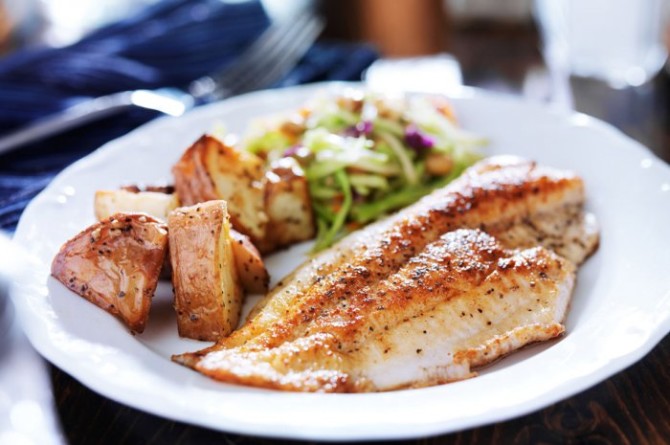
Photo courtesy of thedailymeal.com
“Reading about omega-3 in the news, we get the impression there are lots of ways to get these essential fatty acids — salmon, flaxseed, walnuts, etc. But not all of these sources provide the same value,” says Bo Martinsen, MD.
“Omega-3 is a family of fat molecules. Only fatty fish and breast milk contain all the different members of the omega-3 family, including the best-known EPA and DHA molecules. On the other hand, plant sources of omega-3, like flaxseed or chia seeds, contain only one type of omega-3 – ALA.
“In order for the ALA molecules to be effective in the body, they have to be converted into EPA and DHA. This conversion step is more difficult and limited than people realize. You’d need to drink about a cup of flaxseed oil to get one teaspoon worth of EPA. That’s why eating fatty fish or taking cod liver oil is more effective than flaxseed in putting a damper on inflammation and why the vast majority of omega-3 research has been conducted on fatty fish and fish oil.”
Bars Aren’t Healthy
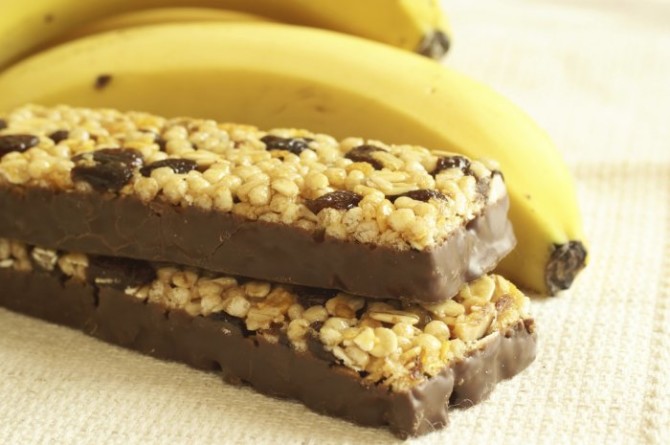
Photo courtesy of thedailymeal.com
“Many energy, fiber, and protein bars are about two steps away from a candy bar,” says Rene Ficek, RD. “These bars make claims of being high in fiber or protein, but other than these added-in nutrients, there’s not much else. Want fiber and protein? Have some string cheese or an apple instead! It’s a much better option for your waistline and overall health.”
Carbohydrates Aren’t Bad

Photo courtesy of thedailymeal.com
“There’s nothing inherently fattening about carbohydrates,” says Rene Ficek, RD. “When it comes to weight gain, it’s eating too many calories that makes the biggest impact. As Americans, we eat the wrong type of carbohydrates such as white bread, pasta, and doughnuts, which can all raise your risk of developing health problems like heart disease and diabetes. But if you cut out so-called ‘good carb’ foods, such as whole grains, beans, fruits, and vegetables, you’re missing out on your body’s main source of fuel as well as vital nutrients and fiber. What’s more, for many people, a low-carb diet may be harder to stick with in the long run. So enjoy your carbohydrates, and don’t feel guilty.”
Celebrity Diets Don’t Work

Photo courtesy of @KhloeKardashian on Instagram
“We change our eating habits quickly based on celebrity endorsements, sound bites, and memes,” says Jonah Soolman, RD, LDN, ACSM EP-C, NSCA-CPT. “While fads move quickly, evidence-based science moves slowly because it requires replication, follow-up studies, investigations into confounding factors, and other time-consuming steps that are necessary for building a body of research that leads to understanding. Better to get nutrition advice from experts rather than headlines.”
Eating Healthy Isn’t Always Expensive

Photo courtesy of thedailymeal.com
“You don’t need to purchase the latest and greatest superfoods in order to have a healthy diet,” says Rene Ficek, RD. “Many of these trendy foods actually don’t compare to the conventional foods that are cheap and readily available to us. Some of the healthiest foods in the grocery store actually the cheapest. For example, rolled oats, lentils, milk, eggs, frozen fruits, and vegetables are some of the least expensive and healthiest foods. While it may take more time (and know-how) to prepare these foods, they are comparable in price to unhealthy, pre-made meals.”
Fat Isn’t Unhealthy
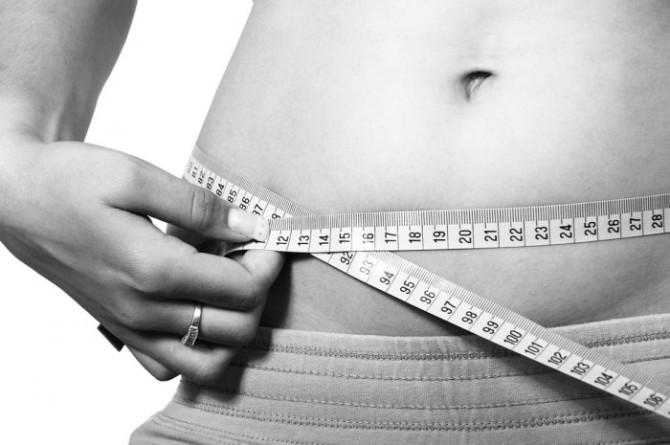
Photo courtesy of thedailymeal.com
“Over the years, I’ve gotten many things wrong,” says Jim Lebret, MD. “I’m lucky to have had a grandmother and mother who believed in fat. They told me: Your brain cells are wrapped in fat, you need it. Unfortunately, I didn’t believe them, so I often tried low-fat diets, drank skim milk, and skipped the oil on salads. I like today’s nutritional recommendations: No limit on total fat. I was also a vegetarian for four years and lost about 20 pounds (not in a good way, I ended up underweight) because of the lack of fat.”
Food Shouldn’t Be ‘Good’ or ‘Bad’

Photo courtesy of thedailymeal.com
“We live in a culture that embraces a good/bad food dichotomy, which vastly oversimplifies nutrition and health,” says Jonah Soolman, RD, LDN, ACSM EP-C, NSCA-CPT. “Not all foods are the same nutritionally; it would be ridiculous to proclaim that an apple has the same nutritional value as a Twinkie, and I am not arguing otherwise. What I am suggesting, however, is to strip the moralization away from food. An apple is just an apple; you are not good or virtuous if you select it as a snack. A Twinkie is just a Twinkie; you are not bad, guilty, or weak-willed if you choose it instead. When we strip moralization away from food and eating behavior, nutrition becomes much easier.”
Frozen Yogurt Isn’t Inherently Better Than Ice Cream
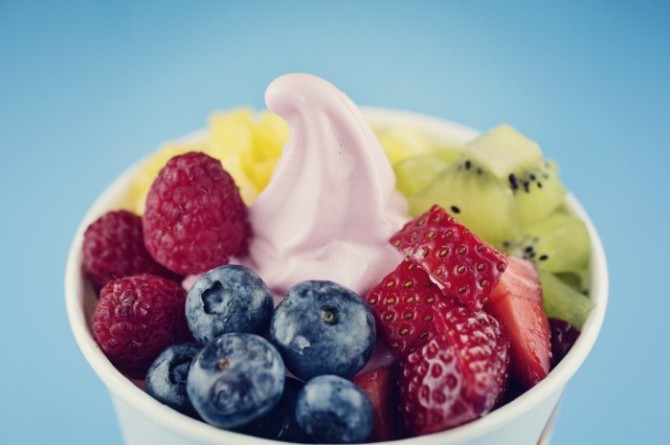
Photo courtesy of thedailymeal.com
“Frozen yogurt seems so much better than ice cream,” says Rene Ficek, RD. “Regarding saturated fat content, it is. But in every other way, it isn’t. In terms of calories and simple sugars, they’re closer than you think. Once we load up the frozen yogurt with sugar- and fat-laden toppings, it’s pretty much equal to its ice-cream counterparts! Plus, we feel inclined to have an extra-large serving since we perceive it as lower-calorie and healthy.”
It Isn’t Always Easy to Match the Dietary Success of Others
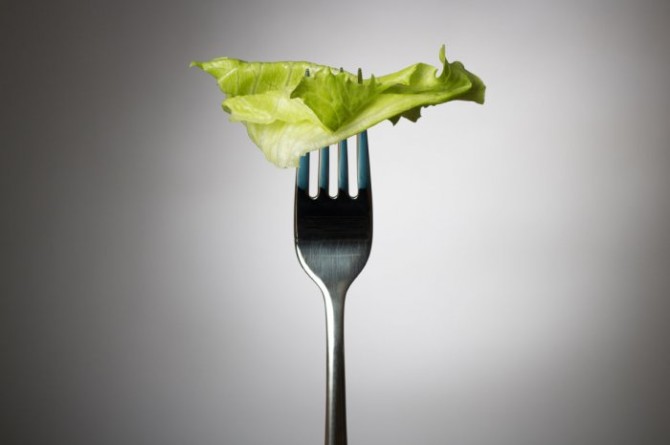
Photo courtesy of thedailymeal.com
“Realize that people are much more likely to be vocal about their dietary successes than their disappointments,” says Jonah Soolman, RD, LDN, ACSM EP-C, NSCA-CPT. “For example, if a given diet works for five percent (which is actually a pretty typical success rate for most weight-loss diets) of the 10,000 people who try it, 9,500 disappointed people will stay relatively silent about their experiences while 500 individuals rave about it online, at the gym, in the grocery store, at the office, over Thanksgiving dinner, or anywhere else that offers an audience. Therefore, the impression we get of a given diet’s success is skewed and not reflective of reality. If you are considering going Paleo, vegan, low-carb, gluten-free, etc. because of success stories you have heard of or witnessed, take a step back and consider the bigger picture. People become millionaires through the lottery every day, but you would not take your life savings and dump it into Power Ball tickets, would you?”
Juices Aren’t Quite as Healthy as Solid Produce
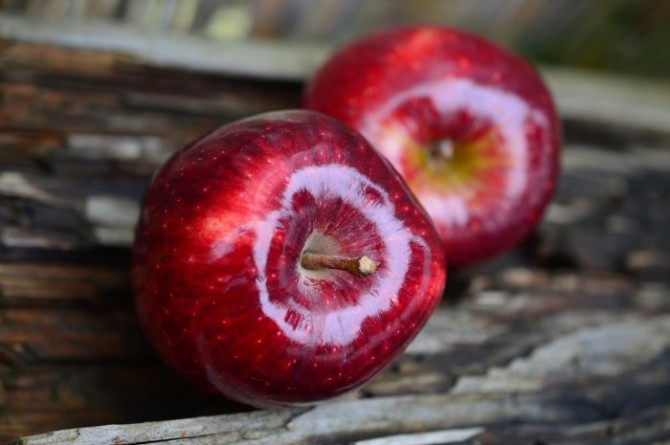
Photo courtesy of thedailymeal.com
“Whole foods or nearly whole foods, as opposed to processed foods, offer us the most nutritional value,” says Robert Davidson, PhD, Director of the Nutrition and Human Performance program at Logan University. “For example, eating a whole apple and drinking apple juice are very different — when you juice an apple, you are essentially processing it, and you lose a lot of the fiber and nutrients present in the whole fruit, which are important for optimal nutrition. Juice can be part of a healthy diet, but it should supplement your intake of whole fruits and vegetables — not replace them.”
Sports Drinks Aren’t Great for You

Photo courtesy of thereviewwire.com
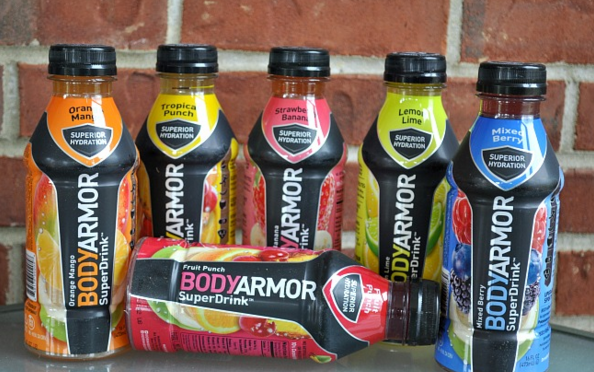
Rene Ficek, RD, says that sports drinks are “said to replace electrolytes lost through exercise and exertion during the course of working out and sporting events. However, for the vast majority of consumers, there are several health reasons not to drink this regularly or at all. Studies have associated this sugar-laden beverage with high blood pressure (high in sodium), dental [damage] (high in sugar), and weight gain (high in calories). My advice is to skip it altogether, unless you are an elite athlete that loses sweat for several hours of the day.”
Taking a Calcium Supplement Alone Won’t Give You Strong Bones
“Taking calcium alone is not a sufficient way to support bone health,” says Dr. Robert Berghoff, MD, of OrthoArizona — Arizona Orthopaedic Associates. “Vitamin D is necessary to help the body absorb calcium, and magnesium is another crucial mineral for bone health. Magnesium is stored in the bones and contributes to healthy muscle and nerve function. Zinc is also important and supports Vitamin D absorption, bone
healing, and bone mass.”
Also, Dr. Berghoff says that supplements and dairy aren’t the only ways to get in calcium. “There are plenty of other diary-free,calcium-rich foods such as broccoli, almonds, kale, and other leafy greens that can be incorporates into your diet.”
The Best Way to Reduce Sodium Isn’t to Ditch the Salt Shaker
“Contrary to popular belief, the majority ofdietary sodium does not come from the salt shaker,” says Rene Ficek, RD. “In fact, only about 10 percent of the sodium we consume comes [from] the salt shaker. About five percent comes naturally found in food, and the other 85 percent comes from processed food. Salt is used as a preservative, so anything that is processed and far away from its natural form requires sodium to be added. So, anything in a bag, box, or can is typically high in sodium. The best way to reduce salt in the diet is to eat whole, unprocessed foods as much as possible.”
You’re Allowed to Eat After 6 P.M.
“Calories eaten at night are not more fattening than those eaten early in the day,” says Rene Ficek, RD. “Calories are calories are calories, and it doesn’t matter what time you eat them. What matters are the total calories you take in. Typically, the problem is what and how much people tend to eat in the evening, but if you monitor your calorie intake, it doesn’t matter what time those calories are eaten.”

